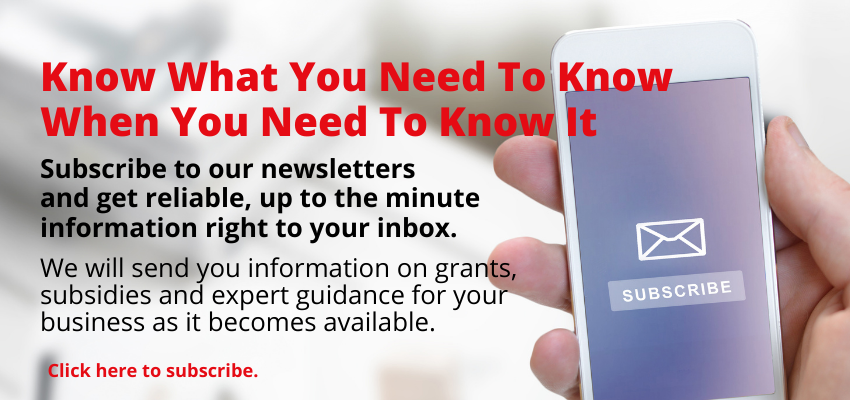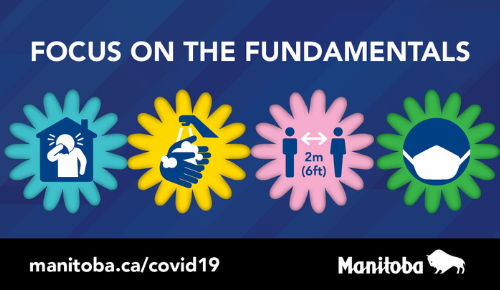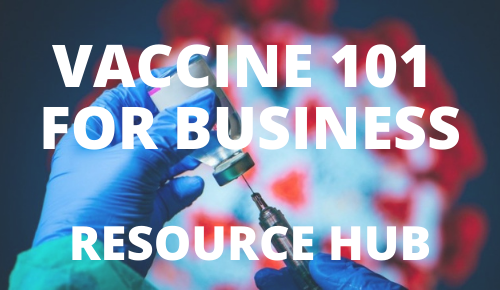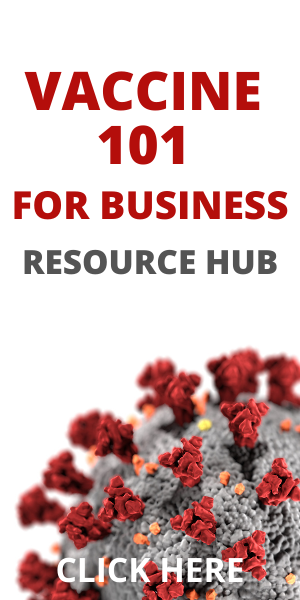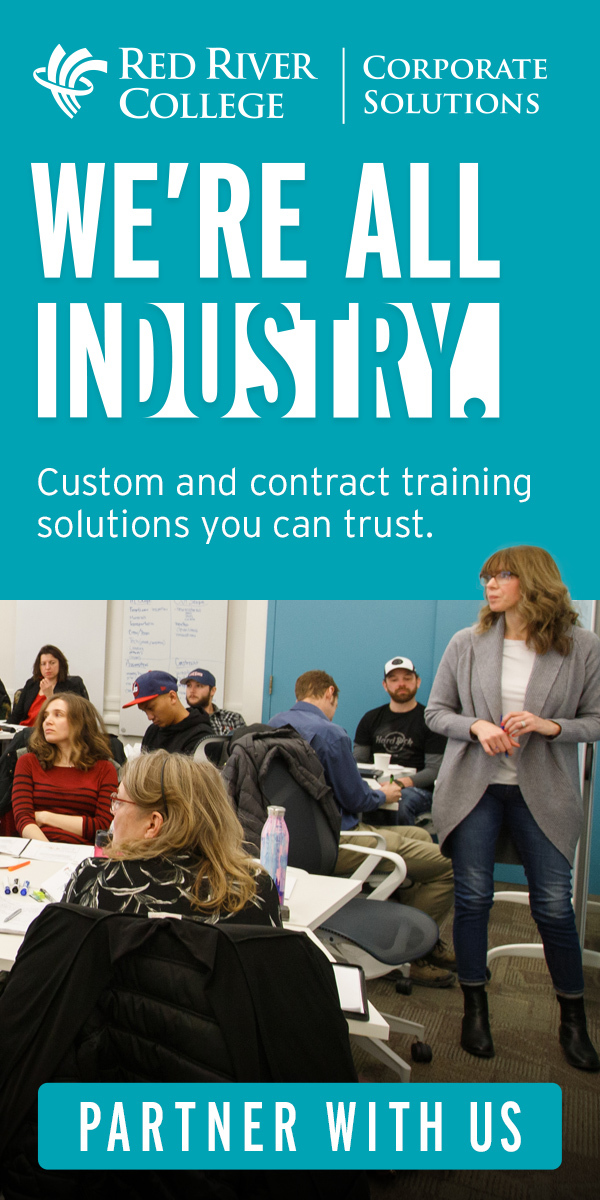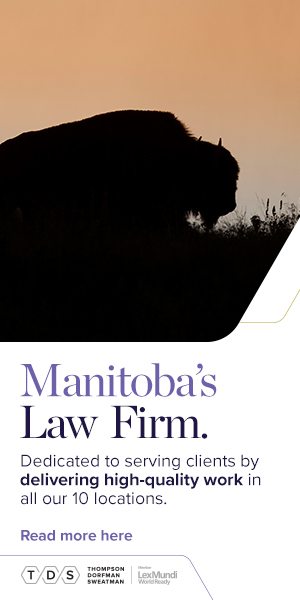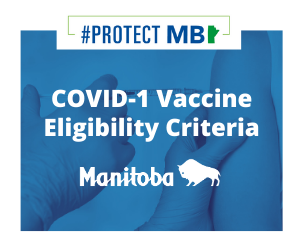
Protecting Manitobans,
Advancing Manitoba
OPEN - CANADA-MANITOBA JOB GRANT
The Manitoba government has increased investment to $8 million this year to help more employers with employee training. The first CMJG intake is NOW OPEN, and eligible training will include training that takes place between April 1, 2022 and March 15, 2023.
The Canada-Manitoba Job Grant helps employers offset the costs of training new employees, or costs associated with developing the skills of their existing workers to meet the requirements of their present job, or to attain a promotion.
Eligible employers may apply for up to $10,000 per employee to assist with training costs delivered by a third party. Employers with 100 or fewer employees must contribute a minimum of 25 per cent of training costs, and employers with over 100 employees must contribute a minimum of 50 per cent of training costs. Employers can apply for up to a maximum of $100,000 in funding.
Employers must have a job available for the trainee upon successful completion of the training. For existing employees, the purpose of training should be to upgrade their skills so they may move up to a better job, or meet employer needs in the workplace.
Employers decide who obtains training, what training is required, and which approved third-party trainer will deliver training. The Manitoba government can help employers to determine their workforce and training needs and connect them to job seekers.
Who is eligible to apply for a Job Grant?
- Private employers
- Non-profit organizations
- Industry associations, sector councils, groups of employers
- Union halls
- First Nations
- Municipal governments
Who is not eligible to apply for a grant?
- K-12 schools and post-secondary institutions funded by provincial/federal sources
- Federal, provincial and territorial governments
- Federal and provincial crown corporations and agencies
Who is an eligible training participant?
- Must be a Canadian citizen or permanent resident of Canada
- Full-time, part-time, and seasonal employees
- Unemployed and seeking training to get a job
- Employees who reside in another province, but are working in Manitoba
How much funding can I apply for?
- Small companies with 100 or fewer employees can apply for up to 75% of eligible training costs
- Companies with 101 or more employees can apply for up to 50% of eligible training costs
- Employers can apply for up to a maximum amount of $10,000 per training participant
- Maximum Job Grant amount regardless of number of trainees and cost of training is $100,000
What costs are eligible for funding?
- tuition fees or fees charged by a training provider
- mandatory student fees
- textbooks, software and other required materials
- examination fees
- travel costs for individuals residing in northern and remote communities to attend training events in Manitoba delivered outside their communities or unavailable online
Who can deliver the training?
Training can be delivered at the workplace, online or in a classroom or training facility and must be provided by a third-party trainer. This could include:
- post-secondary institutions
- private vocational institutions
- sector councils or industry associations
- union halls
- equipment manufacturers and other private trainers that have the applicable curriculum, knowledge/ qualifications, and equipment or materials required for training
How is the Job Grant paid to an employer?
The employer is responsible for selecting and paying the trainer. To be reimbursed for the eligible training costs, the employer must submit:
- Training Plan Report
- Training Evaluation
- Proof of payment of eligible training costs (e.g., invoice and cancelled cheque; invoice and PayPal receipt, etc.)
How are grant applications assessed?
All grant applications that meet eligibility requirements will be processed in the order that they are received until the Job Grant has been fully expended.
How can we help?
The Government of Manitoba can assist employers with:
- identifying their training needs
- connecting with suitable job seekers
- completing the grant application
- information about training delivered by third-party service providers
- information about other available workforce development programs and services
To access the Canada-Manitoba Job Grant – Employer Fact Sheet, please click here.
To access the Canada-Manitoba Job Grant Application form, please click here.
(The CMJG application is an Excel spreadsheet. It takes time to open. Please be patient. Thank you!)
For answers to Frequently Asked Questions related to the Canada-Manitoba Job Grant, please click here.
Staff from the Manitoba Department of Economic Development and Jobs is available to help companies complete grant applications, develop training plans to meet their business goals, and develop or improve their human resource plans.
Still have questions or need more information?
Manitoba Government Inquiry Tel: 204-945-3744
Toll Free in North America: 1-866-626-4862
Email: mgi@gov.mb.ca www.gov.mb.ca/wd/ites/is/cjg.html
The information on this website is based on rapidly developing relief programs and legislative changes, and is produced by Manitoba Business Matters as an information service to Manitoba businesses. It is not intended to substitute professional advice.
These summaries will be updated as support programs and legislation continue to evolve.
For the most comprehensive and current information, please review the Province of Manitoba’s COVID-19 supports for business by clicking here.
CLOSED - SECTOR SUPPORT PROGRAM
The Sector Support Program is a $22 million program that provides assistance to businesses affected by the COVID-19 public health order restrictions released on December 17, 2021 and are in effect from December 21, 2021 to January 11, 2022. The assistance is income for income tax purposes.
Businesses who donate surplus food to a charity that feeds the homeless or other Manitobans in need can deduct the cost of the food for income tax purposes.
Eligible recipients include:
- Food service facilities that rely primarily on dine-in services, including those in hotels
- Movie theatres
- Concert halls
- Museums and galleries
- Recreation and sport facilities and centres, including gyms
Total assistance is based on the number of workers employed for the last pay period that preceded the December 21, 2021 public health orders:
- $3,000 for businesses with up to 9 employees
- $6,000 for businesses with 10 to 19 employees
- $9,000 for businesses with 20 to 49 employees
- $12,000 for businesses with 50 or more employees
One worker includes either a full-time or part-time employee.
For more information visit the Province of Manitoba COVID-19 programs page here.
HOW TO APPLY
Online application: https://forms.gov.mb.ca/sector-support-program/
Application deadline: February 28, 2022
CLOSED - MANITOBA PANDEMIC SICK LEAVE PROGRAM
The Pandemic Sick Leave program provides direct financial assistance to help fill gaps between federal programming and current provincial employment standards for paid sick leave. The program provides employers with up to $600 per employee for up to five full days of COVID-19 related sick leave, which do not have to be taken consecutively. Eligible sick leave related to COVID-19 includes testing, vaccinations and side effects, self-isolation due to COVID-19 symptoms, or care for a loved one in any of the previously mentioned circumstances.
Private-sector, non-profit and charitable employers with eligible employees are able to qualify to receive the assistance. Employers who currently provide paid sick leave to their employees would not be eligible including federal, provincial and local governments. Eligible employees are those who reside in Manitoba and work and receive wages in Manitoba on a full or part-time basis.
The Manitoba Pandemic Sick Leave program began May 7, 2021 and has been extended until March 31, 2022. It is being administered by Economic Development and Jobs through an online application tool.
An employer can apply after the end of their regular pay period (2 weeks). Direct deposit payments will be administered by Finance on a weekly basis.
ELIGIBLE EMPLOYEES
- Employees who are resident in Manitoba and work and receive wages and salaries in Manitoba on a full or part-time basis.
- Self-employed persons and employees who work from home are NOT eligible for this program. Self-employed persons include personal who are employed by a personal services corporation – i.e. a corporation that they are the principal shareholders and they are the sole employee.
- Employees who have exhausted paid sick leave benefits are NOT eligible.
ELIGIBLE EMPLOYERS
- Any employer who employs an eligible employee would qualify, regardless of whether the employer is located in Manitoba or another jurisdiction.
- Non-profit organizations and charities are eligible employers provided they meet the other criteria.
- Employers who currently provide paid sick leave to their employees are NOT eligible. This includes federal, provincial and local governments, Crown agencies boards and corporations, and other workplaces covered by a collective agreement or other agreement that encompasses paid sick leave benefits.
NOTES:
- If an eligible employer offers sick leave, but only to a portion of employees (ie full time vs part time), the employer is eligible to claim employees who are not offered sick leave.
- If an eligible employer offers less than 5 days of sick leave, they are eligible to claim employees for the difference between the days offered by the employer and the 5 day maximum under the program. ie: Employer offers 2 days sick leave, they are eligible to claim 3 days for the employee.
ELIGIBLE WAGES OR SALARIES
The program compensates wages and salaries paid to eligible employees. It excludes other payroll taxes incurred by the employer such as EI or CPP premiums, and the Manitoba payroll tax (Health and Post-Secondary Education Tax Levy).
Note: Under federal income tax rules the amount of government assistance a business receives under the Manitoba Pandemic Sick leave Program either reduces deductible payroll costs or must be recorded as revenue.
What is the difference between the Manitoba Pandemic Sick Leave and the Canada Recovery Sickness Benefit?
- The assistance provided by Manitoba will fill gaps that exist between the Canada Recovery Sickness Benefit and provincial employment standards for paid sick leave. (Under the Manitoba Employment Standards Code, 3 unpaid days of leave in a year for sick leave or for family care responsibilities after 30 days of employment with the same employer.)
- The Canada Recovery Sickness Benefit program requires individuals to apply for sick leave and wait approximately one week before they receive payment. An employee must have missed more than 50% of their work week to be eligible*.
- In addition, the federal program is administratively burdensome for people who are ill, do not have an existing account with the CRA or do not have access to internet at home.
- Under the Manitoba Pandemic Sick Leave program, employees get paid as normal with the employer requesting funds for partial reimbursement.
*Additional Canada Recovery Sickness Benefit Program eligibility criteria still apply. Click here for more information.
TO APPLY
The online applications is available at: https://forms.gov.mb.ca/manitoba-pandemic-sick-leave/
GENERAL INQUIRIES
Call: 204-945-3744 or 1-866-626-4862 (Toll-Free)
Email: mgi@gov.mb.ca
mgi@gov.mb.ca
CLOSED - MANITOBA BRIDGE GRANT
The provincial government is reopening the Manitoba Bridge Grant program with an estimated $5 million in support for seasonal businesses and new applicants affected by the current public health orders.
Businesses that did not previously apply to the Bridge Grant Program before the March 31 program deadline can now apply. Eligible storefront businesses will receive $5,000 and home-based businesses will receive up to $5,000 based on 10 per cent of their gross revenue, depending on when they started operating.
If you previously applied to the Manitoba Bridge Grant program, regardless of whether your application was approved or not, you are not eligible to reapply at this time.
The deadline for new applications is July 16, 2021.
There are two streams of the Manitoba Bridge Grant: Stream A and Stream B.
- Stream A is for store-front businesses.
- Stream B is for home-based businesses.
A store-front business is one which is open for clients or the public to enter. A home based business is one which is not open to clients or the public. A business that applies to the incorrect stream will be asked to reapply under the correct stream.
In addition, businesses which provide a food service establishment with a valid food handling permit will receive an additional $2,000. This includes hotels, lodges, bars and lounges. Businesses that previously received a $2,000 grant will not receive an additional $2,000.
The Manitoba Bridge Grant – Stream A provides a one-time $5,000 grant to eligible Manitoba small- and medium-sized store-front businesses and organizations. The grant provides financial assistance to eligible Manitoba businesses and organizations that are required to fully close their premises to the public as a result of Manitoba COVID-19 public health orders.
The Manitoba Bridge Grant – Stream B provides a one-time maximum of up-to $5,000 to eligible Manitoba full time home-based businesses.
The deadline for applications under both streams is July 16, 2021.
ELIGIBILITY CRITERIA – MANITOBA BRIDGE GRANT – STREAM A
To receive support from the Manitoba Bridge Grant – Stream A, a business or organization must meet all of the following criteria:
- be a permanent, Manitoba-based business or organization physically operating in the Province of Manitoba;
- have been actively operating or conducting business on or prior to June 22, 2021;
- operate as a sole proprietorship, partnership, corporation, co-operative, non-share corporation, not-for-profit organization or registered charity;
- possess an active and valid Manitoba Business Number;
- be in good standing with the Manitoba Companies Office (not required for sole proprietors and registered charities);
- have been affected by the public by Manitoba COVID-19 public health orders, or any revisions to those orders; and
- have an e-mail address and a valid business bank account with a Canadian financial institution
ELIGIBILITY CRITERIA – MANITOBA BRIDGE GRANT – STREAM B
To receive support from the Manitoba Bridge Grant – Stream B, a business or organization must meet all of the following criteria:
- be a permanent, home-based business located in Manitoba and physically operating in the province;
- have been actively operating or conducting business on or prior to June 22, 2021;
- operate as a sole proprietorship, partnership or corporation;
- possess an active and valid Manitoba Business Number;
- be in good standing with the Manitoba Companies Office (this is not required for sole proprietors operating under their personal names who are not registered with the Companies Office);
- businesses started before January 1, 2020 must have filed a 2019 income tax return;
- businesses started after January 1, 2020 must have filed a 2020 income tax return;
- businesses started after January 1, 2021 must provide a record of gross income generated in 2021;
- have an e-mail address and a valid business bank account with a Canadian financial institution; and
- must operate on a full-time basis.
The business must be a home-based business and:
- must operate on a full-time and permanent basis;
- must be actively operating or conducting business in Manitoba immediately prior to the implementation of applicable public health orders;
- affected by Manitoba COVID-19 public health orders in effect as of November 12, 2020 or any revisions to those orders; and
- operate in the region to which the public health order applies to.
The following businesses or organizations are not eligible:
- agriculture or farming industries;
- real estate agents;
- self-employed salespersons or commissioned-based salespersons;
- health professionals;
- lawyers, paralegals, accountants, translators, veterinarians, engineers or geoscientists;
- businesses operating under a regulatory body of a profession;
- businesses that deal in securities, manage financial portfolios or provide financial services;
- businesses that conduct multilevel marketing;
- businesses or organizations that were in arrears for taxes owing to Manitoba and that have not since rectified the amount in arrears; and
- businesses that do not exist for the purpose of carrying on an active business in Manitoba.
In addition, businesses that rely on passive income are not eligible. Passive income is income is from the ownership of capital property or assets that generate income without excessive effort on the part of the stakeholder. Examples of passive income include rental revenue, dividends, royalties etc.
APPLICATION DOCUMENT REQUIREMENTS – STREAM A
Before filling out the online application, ensure you have the following information ready:
- your business number, companies office registry number, workers compensation board or retail sales tax account numbers (as applicable);
- the business or organization’s bank account information; and/or
- your social insurance number, if you are applying as a sole proprietor or partnership, when the partner is an individual. The applicant must be the sole-proprietor, partner, director, or authorized representative of the business or organization.
Stream A online application: https://forms.gov.mb.ca/bridge-grant-stream-a/
APPLICATION DOCUMENT REQUIREMENTS – STREAM B
Before proceeding to the online application, ensure you have the following information ready:
- your business number, companies office registry number, workers compensation board or retail sales tax account numbers (as applicable);
- for businesses that were operating prior to January 1, 2020 – sole proprietors or partnerships must provide, an image (.jpg or jpeg) of page 2 of the 2019 Statement of Business and Investment Income T2125, showing line 8299; for corporations, businesses must provide an image (.jpg or jpeg) of page 1 of 2019 Schedule 125 – Income Statement Information;
- for businesses that started operating after January 1, 2020 – sole proprietors or partnerships must provide, an image of page 2 of the 2020 Statement of Business and Investment Income T2125, showing line 8299; for corporations, businesses must provide an image of page 1 of 2020 Schedule 125 – Income Statement Information. Note: exception only for corporations that are not yet required to file their corporate tax return. These businesses may provide their trial balance or sales ledger.
- for businesses that started in 2021 – businesses must provide their trial balance or sales ledger for the period the business has been operating.
- the business’ bank account information (personal bank accounts will not be accepted unless you are a sole proprietor operating without a registered business name), including an image (.jpg or jpeg) of a void cheque;
- your social insurance number, if you are applying as a sole proprietor or partnership, when the partner is an individual. The applicant must be the sole-proprietor, partner, director, or authorized representative of the business or organization.
Stream B online application: https://forms.gov.mb.ca/bridge-grant-stream-b/
If you require assistance to complete the online form, please contact:
Manitoba Government Inquiry
204-945-3744
1-866-MANITOBA (1-866-626-4862)
For Answers to Frequently Asked Questions, please click here.
The information on this website is based on rapidly developing relief programs and legislative changes, and is produced by Manitoba Business Matters as an information service to Manitoba businesses. It is not intended to substitute professional advice.
These summaries will be updated as support programs and legislation continue to evolve.
For the most comprehensive and current information, please review the Province of Manitoba’s COVID-19 supports for business – click here.
CLOSED - MANITOBA BRIDGE GRANT – Streams, A, B, C and D
Manitoba Bridge Grant – STREAMS A, B, and C
Program Overview: The Manitoba Bridge Grant (MBG) provides financial assistance of up to $15,000* to eligible Manitoba businesses and organizations that were required to fully close their premises to the public as a result of Manitoba COVID-19 Prevention Orders in effect as of November 12, 2020 or any subsequent revisions to those Orders.
*The financial assistance represented is the culmination of three installments up to a maximum of $5,000 for each of the MBG streams.
NOTE: This program is now closed. The Manitoba Chambers of Commerce will advocate for additional Streams of the Manitoba Bridge Grant to support Manitoba businesses as prolonged Public Health Order restrictions continue to negatively impact operations.
NEW: May 10, 2021 – The Manitoba government is increasing its budget for the Manitoba Bridge Grant and will be making a fourth round of up to $5,000 payments for eligible businesses and organizations to help protect them through the third wave of the COVID-19 pandemic.
Through a fourth round of payments, the province will provide up to $71 million in immediate financial support to eligible small and medium-sized businesses, not-for-profits and charities impacted by the #RestartMB Pandemic Response System. This brings the total program investment to $286 million, which is $86 million above the province’s original commitment of $200 million.
Eligible businesses that received prior bridge grant payments will automatically receive a fourth payment of up to $5,000 beginning as early as Friday, May 14 and will be notified of the deposit via email.
Note Additional Sector Specific Support: The Manitoba government has committed an additional $2,000 top-up for restaurants in addition to the $5,000 Manitoba Bridge Grant payment to help cover the costs of food waste, employee wages, maintenance or insurance. Approximately 1,800 restaurants will benefit from this assistance, totalling $3.6 million. (Please see also: Dine-in Restaurant Relief Program)
STREAM A
Effective November 16, 2020, the Government of Manitoba began accepting applications for the Manitoba Bridge Grant STREAM A, which provided $5,000 of financial support to businesses and organizations that have been affected by province-wide closures associated with the pandemic and accompanying public health orders.
STREAM B
On December 8, 2020, the Manitoba Government announced the expansion of the MBG to help more businesses that were not included in STREAM A. The Manitoba Bridge Grant STREAM B Home-Based Business Support provided up to $5,000 in support to eligible home-based businesses, including: event planners, photographers, artists, and tradespeople who do not operate a retail location.
Businesses that applied for the MBG STREAM A between November 16, 2020 and December 31, 2020, were eligible for a second payment. The Manitoba Government began issuing the second round of payments on January 8, 2021 without any action required from applicants.
NOTE: Eligible home-based businesses that have completed a partial year in 2019 will receive a grant in the amount equal to 10 per cent of their 2019 eligible gross business income multiplied x three, to a maximum of $15,000, OR alternatively, for businesses launched in 2020, the benefit will be equal to 10 per cent of annualized income multiplied x three, of the gross income generated from January 1, 2020 to October 31, 2020 to a maximum of $15,000*
*Entitlement is based on adjudication and determination by the Administration Office.
STREAM B+
On January 12, 2021, the Manitoba Government extended the deadline to apply for both STREAMS A & B from December 31, 2020 to January 31, 2021. In addition, eligibility for the MBG was further expanded to include hotels, resorts, lodges and outfitters, travel agencies, janitorial services companies, and owner/operators of licensed passenger transportation businesses impacted by the public health orders that have been in effect since November 12, 2020.
Businesses applying to the MBG for the first time under STREAM B(+) are entitled to a one-time payment of $10,000, and home-based business applicants under STREAM B received a payment up to a $10,000 maximum.
STREAM C
On March 2, 2021, the Manitoba Government announced that it will provide a third round of bridge grant payments (STREAM C) to eligible businesses affected by COVID-19-related closures. Businesses that received the first rounds of MBG payments (STREAMS A & B(+)) will automatically receive a third equal payment.
New STREAM C MBG program applicants will be eligible for a one-time payment up to a maximum of $15,000.
Eligibility Criteria:
To receive support from the Manitoba Bridge Grant, a business or organization must:
- Have been actively operating or conducting business in Manitoba immediately prior to the implementation of applicable public health orders;
- Have been required to fully close their premises to the public as a result of Manitoba COVID-19 Prevention Orders in effect as of November 12, 2020, or any revisions to those Orders.
- Operate as a sole proprietorship, partnership, corporation, co-operative, non-share corporation, not-for-profit organization, or registered charity;
- Possess an active and valid Business Number as of November 9, 2020;
- Be in good standing with the Manitoba Companies Office (not required for sole proprietors and registered charities); and
- Have an e-mail address and a valid business bank account with a Canadian financial institution.
MBG eligible organizations that were required to close between the period of November 12, 2020 to February 11, 2021, that have now reopened in accordance with public health orders, remain eligible to apply for MBG STREAM C.
Businesses and organizations that have received other federal or provincial COVID-19 relief funding are also eligible to apply for the MBG.
Note: Eligible businesses or organizations will receive one grant per entity irrespective of the number of locations operated (i.e. one grant per business or organization). Eligibility will be based on the nine-digit Business Number, and NOT the “BN-15”.
Businesses eligible for the Manitoba Bridge Grant STREAMS A, B(+), and C include:
- Non-essential retailers;
- Restaurants, bars, beverage rooms, brewpubs, microbreweries and distilleries;
- Recreation and sport facilities;
- Museums and galleries;
- Theatres and concert halls;
- Not-for-profit organizations;
- Faith-based organizations;
- Home-based businesses including but not limited to: event planners, photographers, artists and tradespeople;
- Registered charities;
- Hotels;
- Resorts;
- Lodges and outfitters;
- Travel agencies;
- Janitorial services companies; and
- Owner/operators of licensed passenger transportation businesses.
Exceptions:
- Eligible businesses and organizations that seek alternative ways to provide services to the public despite having to fully close their premises as a result of Manitoba COVID-19 prevention orders are eligible to apply. (i.e.: curbside pick-up, delivery, online orders, etc.)
- Community Clubs and Community Centres that had their premises ordered closed to the public by the relevant municipality on or after November 12, 2020 to prevent the spread of the COVID-19 are eligible to apply.
To receive support from the Home-Based Businesses – STREAM B of the MBG, businesses must:
- Be a permanent, home-based business located and physically operating in Manitoba;
- Have been actively operating or conducting business on November 9, 2020;
- Operate as a sole proprietorship, partnership, or corporation;
- Possess an active and valid Business Number;
- Be in good standing with the Manitoba Companies Office (not required for sole proprietors operating under their personal names who are not registered with the Companies Office);
- Have filed a 2019 income tax return if the business started before January 1, 2020;
- Provide a record of gross income generated in 2020 if the business started after January 1, 2020;
- Have an e-mail address and a valid business bank account with a Canadian financial institution; and
- Operate on a full-time basis.
Note: Businesses or organizations that were in arrears for taxes owing to Manitoba before the first state of emergency on March 20, 2020, and that have not since rectified the amount in arrears are not eligible to apply for the Manitoba Bridge Grant in any stream. (Exception: this does not include businesses that have deferred tax remittances incurred between April and September 2020).
Businesses, organizations, professions, and industries not eligible for the MBG include:
- Businesses and organizations that are permitted to operate, but were required to limit the number of occupants within their premises;
- Businesses that do not exist for the purpose of carrying on an active business in Manitoba (e.g., passive* businesses);
- Businesses or organizations that engage in multi-level marketing;
- Agriculture industry;
- Farming industry;
- Real estate agents;
- Self-employed salespersons or commissioned-based sales;
- Health professionals;
- Lawyers, paralegals, accountants, translators, veterinarians, engineers, or geoscientists;
- Businesses operating under a regulatory body of a profession; and
- Businesses that deal in securities or manage financial portfolios or that provide financial services.
*Passive income is income that is derived from the ownership of capital property or assets that generate income without excessive effort on the part of the stakeholder. Examples of passive income include rental revenue, dividends, royalties, etc.
How to Apply: Applications to the program are conducted online. To apply, you will need to have the following information ready:
- Your Business Number, and if applicable, your Companies Office Registry Number, your Workers Compensation Board, and Retail Sales Tax account numbers;
- Your Social Insurance Number, if you are applying as a sole proprietor or partnership, when the partner is an individual (the applicant must be the sole-proprietor, partner, director, or authorized representative of the business or organization);
- The Registered Charity number issued by the Government of Canada if you are applying as a registered charity; and
- The business or organization’s bank account information.
STREAM B Home-Based Businesses will need the following additional information:
- 2019 Income Tax Return. For sole proprietors or partnerships, an image (.jpg or jpeg) of page 2 of the Statement of Business and Investment Income T2125, showing line 8299;
- For businesses started in 2020, proof of income generated from January 1, 2020 to October 31, 2020 (e.g. image (.jpg or .jpeg) of trial balance or sales ledgers); and
- The business’ bank account information (personal bank accounts will not be accepted unless you are a sole proprietor operating without a registered business name), including an image (.jpg or jpeg) of a void cheque.
Notice:
Beginning March 5, 2021, the Manitoba Government issued an additional payment to Bridge Grant recipients that were previously approved under the program (STREAMS A,B, and B+).
- Previous eligible Bridge Grant STREAM A recipients will receive an additional payment in the amount of $5,000. Recipients of STREAM B for Home-Based Business will receive a supplemental payment in the amount of 10% of their 2019 revenues to a maximum of $5,000.
- Payments will be issued without any action on the part of the applicant and will be deposited to the same bank account provided in the initial application.
- Recipients will receive email confirmation once the transaction has been processed. Please allow up to 48 hours following notification for the funds to be deposited into your bank account.
Eligibility is determined based on information provided in the application form. The grant will be approved based on meeting the eligibility requirements.
Applications submitted before closure of the application window that are currently in the adjudication phase, will be eligible for the additional payment if their application is approved.
Payments are automatically deposited into a business or organization’s bank account within 10 business days after the application is approved.
Eligible businesses and organizations do not need to repay the funding they receive through the MBG.
The full financial support provided by the Manitoba Bridge Grant – STREAMS A, B, B+, and C – are considered taxable income.
Click here to apply online.
For answers to frequently asked questions, click here.
The information on this website is based on rapidly developing relief programs and legislative changes, and is produced by Manitoba Business Matters as an information service to Manitoba businesses. It is not intended to substitute professional advice.
These summaries will be updated as support programs and legislation continue to evolve.
For the most comprehensive and current information, please review the Province of Manitoba’s COVID-19 supports for business by clicking here.
CLOSED - HEALTHY HIRE MANITOBA PROGRAM
The Healthy Hire Manitoba Program was first announced in late June to help private-sector businesses reopen while encouraging employees to get fully vaccinated.
Under the Healthy Hire Manitoba Program, local employers can apply for up to $50,000 in provincial support to help cover the wages of new employees who can attest they have been vaccinated, intend to be vaccinated or are unable to be vaccinated.
Along with confirming employee attestation that they have been vaccinated, will be vaccinated or are unable to be vaccinated, eligible employers must declare they have supported public health protocols in the workplace including providing new hires with public health vaccine information.
Eligible employers will receive a grant equivalent to 50 per cent of wages for a maximum of 10 employees, with a maximum of $5,000 per employee, and is calculated based on full pay periods that entirely fall between June 10, 2021 and October 15, 2021, and applications are now being accepted.
The Healthy Hire Manitoba Program helps support that goal and complements our ‘4-3-2-One Great Summer’ Reopening Path that rewards Manitobans with fewer restrictions as more and more Manitobans get fully vaccinated.
The program in intended to benefit employers, employees and Manitobans alike as it encourages vaccination and helps to safely restart our economy as it increases staffing levels and brings more employees back to work to provide Manitobans with the goods and services they depend on.
Employers must be an active and permanent Manitoba-based business, not-for-profit or registered charity physically operating in the province. The Healthy Hire Manitoba Program is available for newly-hired employees who started working no earlier than June 10, 2021 or a rehired employee who worked for that employer in a previous year or who was laid off as a result of the public health restrictions.
In addition, employers that are participating in a different government program may also receive funding from Healthy Hire Manitoba to hire additional employees.
Online application opened July 13, 2021, and employers have until September 30, 2021 to apply.
The online application form can be found here: forms.gov.mb.ca/healthy-hire-manitoba/
NOTE: The Healthy Hire Manitoba Program will be amalgamated with the previously announced Manitoba Youth Jobs Program for a total of $45 million available to support employers as they bring employees of all ages safely into the workplace. New applications will no longer be accepted under the previous Manitoba Youth Jobs Program and employers that have already applied will be notified regarding next steps.
For more information on the new Healthy Hire Manitoba Program including key dates, full eligibility criteria, please download our reference guide by clicking the image below.
The information on this website is based on rapidly-developing relief programs and legislative changes and is produced by Manitoba Business Matters as an information service to Manitoba businesses. It is not intended to substitute professional advice.
These summaries will be updated as support programs and legislation continues to evolve.
For the most comprehensive and current information, please visit the Province of Manitoba COVID-19 supports for business by clicking here.
CLOSED - Manitoba Restaurant Marketing & Recovery Grant
The Restaurant Marketing & Recovery Grant (The RMR Grant) offers financial assistance through working capital grants of up to $2,500 to eligible applicants. Grants may be used to assist with costs such as hiring/retaining staff, marketing programs, and other similar initiatives which promote stabilization within the restaurant industry and your business, within the scope of this program as outlined in the FAQs and the application document.
The RMR Grant is being administered by The Manitoba Restaurant & Foodservices Association (MRFA) with capital from Manitoba Chambers of Commerce (MCC).
The RMR Grant is now open for application submission.
Download the RMR Grant How to Apply & FAQs and Application Form.
All applications must be submitted to RMRgrant@mrfa.mb.ca by October 31, 2021.
Please direct all questions on the program to RMRgrant@mrfa.mb.ca.
CLOSED - DINE IN RESTAURANT RELIEF PROGRAM
On December 22, 2020, the Manitoba government announced it would be providing $5 million in financial relief to dine-in restaurants affected financially by the province moving to Critical (Red) on the #RestartMB Pandemic Response System and the resulting public health orders.
Based on a recommendation from business leadership and stakeholders, the $9-million Dine-in Restaurant Relief Program was delivered by the Manitoba Chambers of Commerce in partnership with the Manitoba Restaurant and Foodservices Association (MRFA) and Economic Development Winnipeg.
The program provided a rebate to dine-in restaurants across Manitoba that had to significantly shift operations to a delivery model as a result of moving to Critical (Red) and subsequent public health orders. The rebate helped offset additional costs of the operational shift related to food delivery services, whether a restaurant provides its own delivery service or uses a third-party delivery company.
PHASE 2 Expansion – On April 16, 2021, the Manitoba Government announced an expansion of the Dine-in Restaurant Relief program. Phase 2 expands the program to include additional months (currently February 2021 only, March 2021 may be added if funding allows) for dine-in restaurants doing delivery, and to include relief for eligible caterers and rural restaurants which do not have access to delivery capabilities.
TOP-UP – May 10, 2021 – The Manitoba government has committed an additional $2 million to the Dine-In Restaurant Relief program to help restaurants shift their operations toward a delivery model.
PHASE 3 Expansion – Phase 3 expands the program on June 7, 2021, with a further $2 million in additional funding to include:
- an additional month (March) for previously approved Dine-in restaurants doing delivery (however, no new applications will be accepted for Dine-in restaurants doing delivery and ONLY the month of March will be available for relief during Phase 3);
- a second rebate payment equal to the first for caterers and rural restaurants accepted into the program in Phase 2; and
- applications from fast casual restaurants and new applications from caterers and rural restaurants which have seen a significant decline in revenue in 2020 over 2019 due to the pandemic and dine-in health order closures.
ELIGIBILITY CRITERIA:
- PLEASE NOTE: No new applications for Dine-in restaurants doing delivery will be accepted in Phase 3, and ONLY the month of March is available for relief. Previously, under Phases 1 and 2, restaurants must have relied on dine-in revenue prior to the pandemic and associated Code Red restrictions (in effect November 2, 2020 for the City of Winnipeg and November 12, 2020 province-wide) which closed restaurant dining rooms to guests. Traditional eat -in circumstances must have shifted to food delivery services.
- Eligible delivery services included those provided by third-party companies, in-house models, or a combination of the two.
- Qualifying restaurants and food service establishments must have been able to prove delivery commissions/fees/revenue through proper documentation such as invoices and reports (see documentation section below for more info).
- Phase 2 included caterers and rural restaurants which did not have access to delivery models or capabilities. These organizations must submit documentation to demonstrate eligible revenue declines comparing 2019 to 2020 (see documentation section below for more info).
- Quick service restaurants (also known as QSRs), drive-thru, take-out, and other restaurant and food service establishments that did not rely on dine-in revenue prior to the pandemic and Code Red restrictions were not eligible for support from Phase 1 or 2. Fast casual restaurants have become eligible for Phase 3, but due to limited funding, other QSR models remain ineligible.
- Phase 3 now includes fast casual restaurants which can prove revenue decline from 2020 over 2019 due to the pandemic. Fast casual for the purposes of this program is defined as independently owned restaurants with limited eat-in capacity, and whose revenues are driven in large part by walk-up counter service, not traditional “quick service” national chains (QSR’s).
ELIGIBLE REMUNERATION:
- Third-party delivery commissions and monthly fees will be reimbursed at 100%. Ineligible expenses from third-party companies include, but are not limited to: Charges for restaurant errors and fees incurred for driver wait times at restaurants, set-up or hardware fees, as well as marketing with third-party delivery companies.
- In-house delivery revenues (before tips and taxes) will be reimbursed at 20% of their total value. Ineligible costs related to in-house delivery are fees charged to customers for delivery costs as well as employee wages, take-out container costs, delivery vehicle kilometres and fuel charges, and other ancillary costs outside of direct delivery revenue.
- Delivery revenue may include delivery of meal kits, grocery items, and other food items restaurants have added to their offerings during the pandemic.
- Any combination of the above in-house and third-party delivery will be accepted, and a qualifying restaurant may submit supporting documentation for both methods.
- Phase 2 Expansion – Caterers and rural restaurants that do not have access to delivery models will be allocated a one-time relief amount according to a tiered system depending on a percentage of revenue decline. The maximum revenue allocation that can be rebated is capped at $100,000.
- Phase 3 Expansion – Applicants approved for Phase 2 will receive an automatic second payout equal to their first amount, and NEW Phase 3 applicants will receive a one-time payout equal to double the amount of their relief calculation. These organizations will not be rebated for any fees, commissions, or revenues otherwise.
- Fast casual restaurants will be allocated a one-time relief amount and paid out according to a tiered system depending on their percentage of revenue decline. These organizations will not be rebated for any fees, commissions, or revenues otherwise.
Note: Items not related to food or drink (such as merchandise, décor, clothing, gift cards, etc.) is not considered eligible revenue.
NOTE: Rebate does not include the amount of any Federal Goods and Services Tax, and/or Manitoba Retail Sales Tax for which the participant is entitled to any refund or credit, whether received, applied for, or for which an application could be made.
SUPPORTING DOCUMENTATION:
In-house Delivery Services: Approved applicants must provide revenue reports for required months/periods which demonstrate the breakdown of delivery revenue vs. take-out/curbside/pick-up/all other revenue.
- Applicants who are unable to provide revenue reports that break down delivery vs. other revenue types due to a lack of tracking these differences within their system will be reimbursed based upon the industry average.
Third-party Delivery Services: Once a restaurant has been approved, the applicant must provide documentation from third-party delivery partner(s) that shows a clear breakdown of delivery commissions and fees paid during the reporting period.
- The general model of reporting in the template provided courtesy of SkipTheDishes may be used for all third-party delivery companies.
- The report must detail the delivery commissions and fees for the reporting period (preferably a custom CVS report.)
- Additionally, applicants must provide a report or set of reports which are files that cannot be edited (not a CVS report as above; either a PDF or image file, or similar style document) such as an invoice or statement report with logo and/or company name to validate/confirm the approximate numbers which the CVS report from above details. (This can be four weekly statements like in the example, a monthly statement, or some similar type of statement.)
NOTE: The Manitoba Restaurant and Foodservices Association is aware that all third-party company reporting varies slightly, but custom reporting and supporting invoice/statements appear to be available across all platforms encountered thus far.
Special thanks to Skip the Dishes for providing a template report for use.
Caterers & Rural Non-Delivery Restaurants: Approved applicants must provide revenue reports comparing 2019 to 202 to demonstrate revenue declines.
- Applicants must provide POS reporting or other non-editable reporting that clearly demonstrates net sales (excluding any sales that are not food and beverage related if the organization sells other merchandise) and excludes tips, taxes, and other fees for the whole of 2019 and 2020. Note: Spreadsheets are not accepted.
- The MFRA team will compare the revenues and calculate the percentage of decline and allocate a one-time payout of relief based upon this calculation. (Up to a maximum of $100,000.)
- PLEASE NOTE: For Phase 3, applicants accepted and paid during Phase 2 do not need
to submit any further documentation and should receive an automatic duplicate
payment of the exact same amount as their first payment from Phase 2. New
applicants accepted and processed in Phase 3 will receive one payment equal to the
doubled-up amount during Phase 3.
Fast Casual Restaurants: Approved applicants must provide revenue reports comparing 2019 to 2020 to
demonstrate revenue declines.
- Applicants must provide POS reporting or other non-editable (not spreadsheet) reporting that clearly demonstrates net sales (excluding any sales that are not food and beverage related if the organization sells other merchandise) and excludes tips, taxes, and other fees for the whole of 2019 and 2020.
- The MRFA team will compare the revenues and calculate the percentage of decline and allocate a one-time payout of relief based upon this calculation.
REBATE PROCESSING PROCEDURE:
- STEP 1: The MRFA team will begin reviewing documentation once an approved applicant has successfully submitted all required documentation for a given reporting period. Due to the volume of documentation required and number of applicants, documentation review may take up to two weeks after submission.
- The MRFA team will endeavor to process document review for payment approval as soon as possible, and may need to go back to applicants for additional information.
- Payments will be disbursed for each reporting period/month of the program as submissions are processed, reviewed, and approved on a rolling basis.
- STEP 2: Once an applicant’s document submission is processed for payment approval, the MCC team will process applicant payment.
- STEP 3: Payment notification will be sent by email to applicants and funds will be transferred by EFT to the banking institution and account submitted with the application within 3 to 5 business days.
NOTE: Please report any changes to banking information by email: DineInApply@mrfa.mb.ca.
APPLICATION PROCESS AND TIMELINES:
Phase 3 is only open to fast-casual restaurants and new applicants in the category of caterers and rural restaurants not doing delivery. Phase 3 is closed to further applications from dine-in restaurants doing delivery and quick service restaurants are not eligible at this time.
- Online application process to begin on June 7, 2021 at 10:00am CST.
- Two Step application process
- Applicant completes initial online application which is then vetted to determine if they are eligible for program.
- If eligible applicant asked to upload monthly delivery invoices or revenue decline reports via online portal for reimbursement which is vetted again.
- If approved, applicant would receive reimbursement by Electronic Funds Transfer.
- Previously approved applicants for Dine-in restaurants doing delivery can submit documentation for relief for the month of March by logging into their portal at https://rrf.mbchamber.mb.ca/restaurants. The months of November-February are now closed for document submission.
- Previously approved applicants for caterers and rural restaurants not doing delivery will automatically receive a second relief payment equal to their first from Phase 2 and do not need to submit further documentation at this time or apply again in Phase 3.
- Applications for new applicants, whether fast-casual or caterers and rural restaurants not doing delivery, can be made for a one-time relief using a comparison of revenues demonstrating the year-over-year decline for 2019 compared to 2020.
- New applicants categorized as caterers and rural restaurants not doing delivery will receive their ‘doubled-up’ amount as one payment in Phase 3.
For more detailed information on the program, please view our FAQ.
Click here to apply for the Dine-in Restaurant Relief Program.
If you have any additional questions, please direct all inquiries to the Manitoba Restaurant and Foodservices Association by email: DineInApply@mrfa.mb.ca.
Click here to review the Dine-in Restaurant Relief Program Terms and Conditions, Indemnification, Covenants, and Governing Law applicable to the rebate program.
NOTE: The Dine-in Restaurant Relief Program is considered taxable income.
The information on this website is based on rapidly developing relief programs and legislative changes, and is produced by Manitoba Business Matters as an information service to Manitoba businesses. It is not intended to substitute professional advice.
These summaries will be updated as support programs and legislation continue to evolve.
For the most comprehensive and current information, please review the Province of Manitoba’s COVID-19 supports for business – click here.
CLOSED - HOSPITALITY SECTOR RELIEF PROGRAM
On March 16, 2021, the Manitoba government announced the Hospitality Sector Relief Program to provide financial assistance to Manitoba’s accommodation and tourism sector. The program, administered in part by the Manitoba Hotel Association (MHA) and in part by the Manitoba Lodges and Outfitters Association (MLOA), provided $6 million financial assistance to eligible Hotels for fixed costs that have not been covered by other relief programs.
Application Process and Dates
Applying for the program is a two-step process.
Step 1: Application
Completing this application is the first step. It is a quick process, consisting of answering a series of questions that will determine whether or not you meet the program eligibility.
To be eligible, you must meet the definition of a Hotel for purposes of this program with Eligible Costs that qualify for financial assistance under the program.
The deadline for this initial application is May 31, 2021, at 3:00pm (Central Daylight Time).
Step 2: Submitting Supporting Documents and Claim Amount(s)
If you are notified that your initial application has been accepted, you will then be asked to submit supporting documents through an online portal.
The deadline to submit supporting documents is June 14, 2021, at 3:00pm (Central Daylight Time).
No exceptions will be made to the deadlines, and no extensions will be granted.
Program Eligibility
Only Hotels are eligible to receive funding.
When you begin your application, you will be guided through a series of questions that will determine whether or not you meet the definition of a Hotel for the purposes of this program.
Please note that the following types of businesses do not qualify for this program:
- Businesses that have received financial assistance under the Manitoba Lodges and Outfitters Association’s component of the Hospitality Sector Relief Program.
- Businesses that hold a Resource Tourism Operator (RTO) License.
- Businesses that are not in good standing or are not registered with the Manitoba Companies Office or do not have a valid and active Business Number.
- Businesses that are bankrupt or in receivership.
- Hostels, dormitories, apartment buildings, condominium buildings, hospitals, campgrounds, short-term rental units located in privately-owned homes, apartments and condominiums.
Full eligibility is outlined in the program Terms and Conditions.
Additional notes about eligibility:
If you applied for the federal CERS program, you are still eligible for this program. This program’s eligibility dates of March 20, 2020 to September 19, 2020 were selected so as to not overlap with CERS (which began September 27, 2020).
If you own multiple Hotels, each Hotel may apply. A separate application must be submitted for each Hotel.
Eligible Costs
Eligible costs must have been paid in full and must be any one of the following:
1) Property Tax
- You can claim School and Municipal taxes as appearing on your hotel’s 2020 property tax bill (pro-rated from March 20, 2020 to September 19, 2020). Claim only net property taxes less any tax credits.
- You are not eligible to claim any outstanding interest or other charges, or amounts applicable to other years, or properties other than the location of your hotel.
OR
2) Property Insurance
- This program uses the same criteria (click here to view) as the Canada Emergency Rent Subsidy (CERS). Certain amounts from your insurance premium aren’t eligible to claim. (For example, contents and liability coverage, as well as sales taxes, are excluded from CERS, and from this program.)
- You can claim property insurance premiums for the period March 20, 2020 to September 19, 2020.
- If your policy year renewal is between March 20 and September 19, then your claim may include premiums that cover parts of two policy years.
- As per the rules of this program, you must exclude any amounts for coverage outside of your hotel. (For example, if your company conducts business outside of the hotel operations, you must exclude that portion of your premium. If your company manages multiple hotels, you can only claim the premium that relates to this hotel.)
OR
3) Mortgage Interest
- This program uses the same criteria (click here to view) as the Canada Emergency Rent Subsidy (CERS).
- You can claim mortgage interest for the period March 20, 2020 to September 19, 2020.
- Your mortgage interest payable may be different than the payments that you were able to make. (For example, if you had a cash crunch in April and May 2020, and did not make your mortgage payments for those months on time, the mortgage payments that had been due are the amounts that can be claimed, so long as those amounts have since been paid in full.)
Calculation of Payments
Financial assistance will be calculated as your portion of the overall total Eligible Costs of all the Hotels participating in the program.
The maximum financial assistance for a Hotel is $70,000.
For more information please contact the Manitoba Hotel Association.
For answers to Frequently asked Questions, please click here.
CLOSED - Back to Work in Manitoba Wage Subsidy Program
Program Overview: The Back to Work in Manitoba initiative is a hiring program designed to support Manitoba’s economic recovery by encouraging Manitoba employers to bring back their employees or take on new hires. The program covered 50 per cent of wage costs between July 16, 2020 and December 31, 2020. Employers can be supported to hire up to 20 employees.
November 10, 2020 Program Update: Employers that applied to the program on or before November 9, 2020 are eligible to receive an advance payment of $1,500 for every eligible worker hired or re-hired to date under the program.
NOTE: This program has now closed. The Manitoba Chambers of Commerce will advocate for the reinstatement of the Back to Work in Manitoba Wage Subsidy for 2021.
Employer Eligibility Criteria: The program is open to all private sector and non-profit employers who are operating in Manitoba and meet all of the following criteria:
- Manitoba-based businesses and non-profit organizations operating in the Province of Manitoba including new start-ups – are eligible
- Employers must possess an active and valid Business Number, business bank account, and e-mail address
- Employers must be registered, and in good standing with the Companies Office (not required for sole proprietors)
- Employers can hire 20 new or rehired employees under this program
Employers cannot receive funding for any existing employees that are or have been subsidized by another government program. This includes, but is not limited to: the Canada Summer Job Program, Green Team, Canada Emergency Wage Subsidy, Manitoba Back to Work This Summer Program, and the Manitoba Summer Student Recovery Jobs Program. (This does not include the Federal government’s 10 per cent Temporary Wage Subsidy for Employers.)
Employers that received support under the Manitoba Back to Work This Summer Program and Manitoba Summer Student Recovery Jobs Program are eligible to receive support to hire 20 new or rehired employees under this program.
September 14, 2020 Program Update: Employers can apply under Back to Work Manitoba to rehire students that they previously employed under a summer wage subsidy program. This includes employers that previously hired students through the Manitoba Summer Student Recovery Jobs Program, Canada Summer Job Program, and Green Team Program. The student must have been laid off prior to the announcement of this policy update (September 14, 2020) or as a result of restrictions resulting from the #RestartMB Pandemic Response System.
The following employers are not eligible:
- Employers are not eligible if they were in arrears for taxes owing to Manitoba on March 20, 2020 (i.e. before the state of emergency), and that have not since rectified this amount in arrears. (This does not include businesses that have deferred taxes as a result of COVID-19 relief programs to defer tax remittances)
- Employers that conduct multilevel marketing are not eligible, nor are passive businesses or corporate entities that do not exist for the purpose of carrying on an active business in Manitoba
- Employers that currently have an active Manitoba Business Start Loan Guarantee, a loan under the Manitoba Industrial Opportunities Program, or an agreement under The Community Revitalization Tax Increment Financing Act are not eligible.
- Public sector employers including public health, educational institutions, and municipal/provincial/federal governments, agencies, and political parties are not eligible
Financial Support: Employers are eligible to receive a reimbursement of 50 per cent of total wages actually paid between July 16 and December 31, 2020, to a maximum of $5,000 per worker.
Employers that applied to the program on or before November 9, 2020 are eligible to receive an advance payment of $1,500 for every eligible worker hired or re-hired to-date under the program. The balance of the wage subsidy will be paid out at the end of the program upon submitting final claims.
Employers that applied on or after November 10, 2020 will receive a lump sum upon submitting final claims.
All final claims must include minimum supporting payroll documentation demonstrating proof of wages paid. See the Questions and Answers section below for a description of the minimum supporting payroll documentation required.
NOTE:
- Employers are eligible to receive reimbursement only for wages paid and employees hired on or after July 16, 2020.
- Employers that re-hire workers laid off as a result of restrictions under the #RestartMB Pandemic Response System are eligible for the subsidy.
- Employers can re-hire students previously employed under a summer wage subsidy program. The student must have been laid off prior to September 14, 2020 or as a result of restrictions resulting from the #RestartMB Pandemic Response System.
- To participate in the program, employers will be required to submit an application on or before December 1, 2020.
Employers can apply to receive funding for up to 20 positions and can receive up to $100,000.
Please note that owners are not eligible to receive reimbursement for wages paid to themselves.
Employer Obligations:
- The program is open to all workers who are residents of Manitoba and legally entitled to work in Canada, including students
- All positions are eligible, regardless of work hours (full-time, part-time, and casual) and term (permanent, contract, and seasonal)
- There is no maximum wage amount. However, reimbursement under the program is limited to $5,000 per eligible worker
- Employers cannot hire a member of their immediate family for any positions for which they are requesting funding. This includes immediate family members of someone who has a direct financial interest in the company (owner, major shareholder, board member, director, executive member of the applicant organization), or any person who is involved in the hiring or responsible for the supervision of the employee. Immediate family is defined as a person’s smallest family unit, consisting of their closest relatives, such as parents, spouse, siblings, and children. This includes biological, adopted, and relatives through marriage
- Employers must comply with all federal, provincial, and municipal laws and regulatory requirements
- Employers must follow Manitoba’s COVID-19 public health guidelines for the workplace
- Employers must maintain complete and correct payroll, employment and accounting records, financial documents, and other records for each worker hired under this program
- The worker may be a previous employee laid-off due to COVID-19, provided they had not been re-hired prior to July 16, 2020, or a new employee. Workers hired under this program must not displace any existing employees
How to Submit Your Application: This program is now closed. The Manitoba Chambers of Commerce will advocate for the reinstatement of the Back to Work in Manitoba Wage Subsidy for 2021.
For answers to frequently asked questions on the Back to Work in Manitoba Wage Subsidy Program, click here.
For general inquiries
Call: 204-945-3744 or 1-866-626-4862 (Toll-Free)
Email: mgi@gov.mb.ca
NOTE: The Back to Work in Manitoba Wage Subsidy Program is considered taxable income.
The information on this website is based on rapidly developing relief programs and legislative changes, and is produced by Manitoba Business Matters as an information service to Manitoba businesses. It is not intended to substitute professional advice.
These summaries will be updated as support programs and legislation continue to evolve.
For the most comprehensive and current information, please review the Province of Manitoba’s COVID-19 supports for business – click here.
CLOSED - Caregiver Wage Support Program (CWSP)
Program Overview: The Province of Manitoba invested $35 million into the development of the Caregiver Wage Support Program to provide a $5 per hour wage supplement to eligible front-line workers that provide direct patient or residential care to vulnerable Manitobans, between November 1, 2020 and January 10, 2021.
NOTE: The Manitoba Chambers of Commerce will advocate for additional intake periods for the CWSP in 2021 as the pandemic continues.
Financial Benefit:
- Eligible applicants receive a $5 per hour wage supplement
- Eligible hours include actual regular and overtime hours worked between November 1, 2020 and January 10, 2021, performed in an eligible position and facility
- A 10 per cent withholding tax will be remitted to the Canada Revenue Agency on the applicant’s behalf
- A T4A information slip will be issued to applicants for inclusion in their 2020 and 2021 income tax returns
Eligibility Criteria:
Applicants must meet all of the criteria:
- Earn a regular wage of $25/hr or less excluding shift premiums and overtime rates
- Work in one or more of the following positions:
- Health Care Aide or equivalent
- Housekeeping staff
- House Supervisor
- Direct Service Worker (CLDS, CFS, FVPP, and Shelters)
- Youth Care Worker/Practitioner
- Recreation Worker
- Rehabilitation Worker
- Work in one or more of the following facilities:
- Child and Family Services (CFS) group home
- Community Living disABILITY Services (CLDS) shift -staffed group home or 24/7 cluster living arrangement
- Emergency placement resource shelter
- Family violence prevention shelter
- Homeless shelter
- Personal care home
- Retirement residence
- Supportive housing residence
- Possess a valid Social Insurance Number (SIN), e-mail address, and a valid Canadian bank account
NOTE: The following positions are not eligible for the Caregiver Wage Support Program: Dietary aides, nutritional aides, kitchen staff, maintenance staff, home care workers, reception, administration, or clerical staff.
Eligible Remuneration:
- The hours claimed may include:
- Regular hours worked in an eligible position and facility
- Overtime hours worked in an eligible position and facility
- Only report the actual hours worked. Example: If you worked 8 hours of overtime at `time and a half’, please report 8 hours, and not 12 hours because it was ‘time and a half.’
- The following are not eligible to be claimed as ‘hours worked’:
- Vacation time, or hours away from the workplace
- Sick time in which you did not work
- Always follow the Manitoba COVID-19 prevention orders as well as your employer’s guidelines
- Time away from work when in self-isolation due to COVID-19 exposure or other
- Hours worked in a non-eligible position with an eligible employer
Application Process:
- The program accepted applications in the following intake windows:
- Application Intake 1: December 7, 2020 – December 14, 2020
- Applicants will be required to report the number of eligible hours worked for the period of November 1, 2020 – December 6, 2020
- Application Intake 2: January 11, 2021 – January 18, 2021
- Applicants will be required to report the number of eligible hours worked for the period of December 7, 2020 – January 10, 2021
- Payment will be made within five business days following the closure of the application intake window
- Please allow up to 48 hours for the funds to be deposited into your account after receiving payment notification
- Application Intake 1: December 7, 2020 – December 14, 2020
How to Submit Your Application: The intake window for the Caregiver Wage Support Program is now closed. Information on additional Application Intake periods will be updated as the information becomes available.
For answers to Frequently Asked Questions, please click here.
NOTE: The Caregiver Wage Support Program is considered taxable income.
The information on this website is based on rapidly developing relief programs and legislative changes, and is produced by Manitoba Business Matters as an information service to Manitoba businesses. It is not intended to substitute professional advice.
These summaries will be updated as support programs and legislation continue to evolve.
For the most comprehensive and current information, please review the Province of Manitoba’s COVID-19 supports for business – click here.
Know More.
Latest News
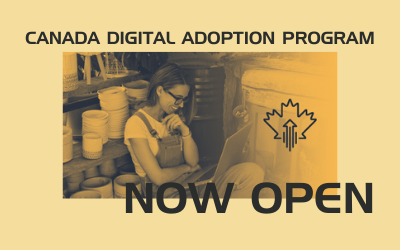
Check your eligibility: Canada Digital Adoption Program now open
Prime Minister Justin Trudeau today announced the launch of the Canada Digital Adoption Program (CDAP) to help Canadian small- and medium-sized businesses grow their online presence and upgrade or adopt digital technologies. The funding will help for-profit...
Social
Get Help.
Latest News

Check your eligibility: Canada Digital Adoption Program now open
Prime Minister Justin Trudeau today announced the launch of the Canada Digital Adoption Program (CDAP) to help Canadian small- and medium-sized businesses grow their online presence and upgrade or adopt digital technologies. The funding will help for-profit...
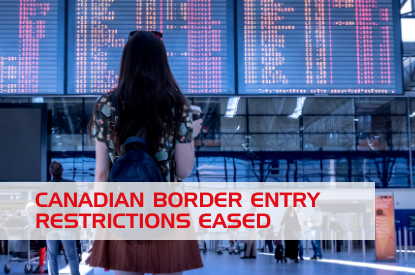
Loosened restrictions now in effect for travellers entering Canada
With declining COVID-19 cases and hospitalizations, the Canadian government announced on Feb. 15 that it would be lifting its travel advisory against all non-essential international travel and easing some restrictions at the border. These loosened restrictions went...
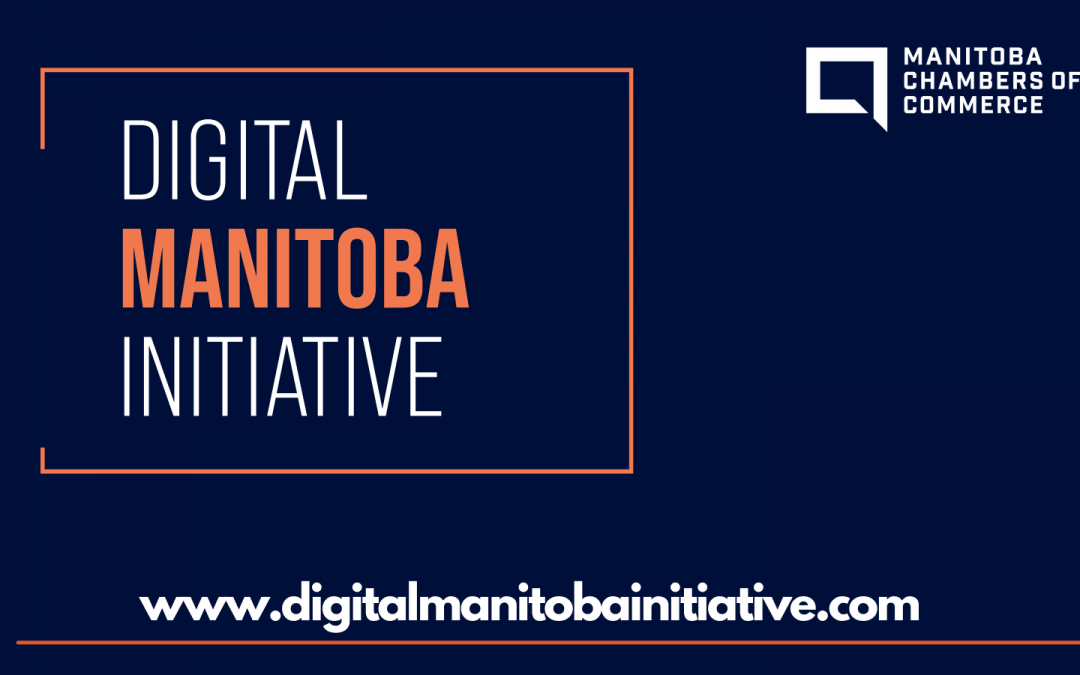
DMI set to re-open with TechUp on Feb. 22/2022
The Manitoba Chambers of Commerce (MCC) in partnership with the Province of Manitoba are preparing to re-open the funding application process for the Digital Manitoba Initiative (DMI) help Manitoba SMEs and not-for-profit organizations with digital transformation. The...

